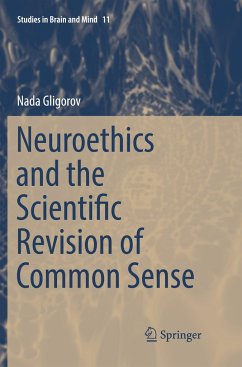This book is focused on the examination of the particular relationship between developments in neuroscience and commonsense concepts, such as free will, personal identity, privacy, etc., which feature prominently in moral discourse. In the book common sense is recast as an ever-shifting repository of theories from many domains, including science. Utilizing this alternative characterization of common sense, the book reexamines the impact of neuroscience on commonsense moral conceptions.
Neuroethics is one of the newest, developing branches of Bioethics. Topics often raised include issues of free will, personal identity and the self; the possible ethical implication of memory manipulation; brain imaging and mind-reading; brain stimulation/enhancement and its impacts on personal identity; and brain death.
Neuroethics is one of the newest, developing branches of Bioethics. Topics often raised include issues of free will, personal identity and the self; the possible ethical implication of memory manipulation; brain imaging and mind-reading; brain stimulation/enhancement and its impacts on personal identity; and brain death.
"Nada Gligorov focuses on several of the more metaphysical concerns in neuroethics and engages in an insightful way with philosophy of mind and empirical neuroscience. ... The writing is generally crisp and concise, and Gligorov's ability to explain complex ideas clearly will be of particular value to readers less familiar with the enormous literature in philosophy of mind." (L. Syd M. Johnson, Notre Dame Philosophical Reviews, ndpr.nd.edu, March, 2017)
"This book is written for philosophers and neuroethicists, particularly those interested in moral behavior. ... This book is a fascinating read. ... this book successfully offers some new lenses to examine controversial issues in neuroethics and is a positive addition to the field." (Brandy M. Fox, Doody's Book Reviews, February, 2017)
"Through eight chapters of concise written text rich with analyzes of ideas and arguments, interweaving philosophy of mind and neuroscience data, Gligorov examines the impact of expansion of research in neuroscience (as the most developing and prominent science) and the novel neuroscientific results on commonsense conceptions of morality and psychology." (Martina Sendula-Pavelic, JAHR - European Journal of Bioethics, Vol. 8 (2), 2017)
"This book is written for philosophers and neuroethicists, particularly those interested in moral behavior. ... This book is a fascinating read. ... this book successfully offers some new lenses to examine controversial issues in neuroethics and is a positive addition to the field." (Brandy M. Fox, Doody's Book Reviews, February, 2017)
"Through eight chapters of concise written text rich with analyzes of ideas and arguments, interweaving philosophy of mind and neuroscience data, Gligorov examines the impact of expansion of research in neuroscience (as the most developing and prominent science) and the novel neuroscientific results on commonsense conceptions of morality and psychology." (Martina Sendula-Pavelic, JAHR - European Journal of Bioethics, Vol. 8 (2), 2017)








